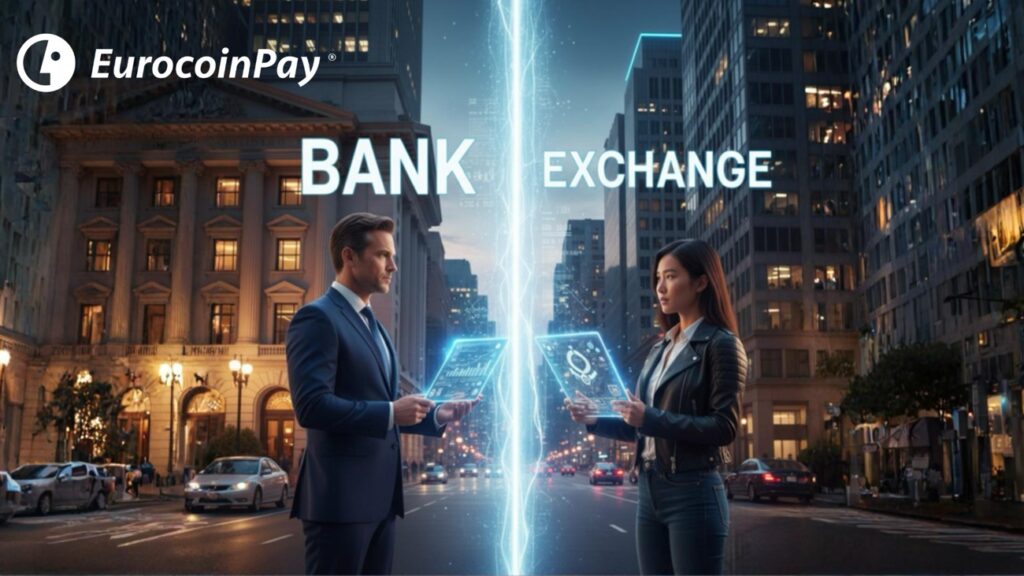The cryptocurrency market has been immersed for months in a maelstrom of negative news that has pushed the main assets to the debacle of their value compared to the highs reached in November 2021. From the collapse of cryptocurrencies such as Terra, bankruptcies and bankruptcy proceedings in cryptocurrency trading platforms, to accusations of facilitating money laundering in some exchanges have haunted the ecosystem. A situation marked by a macroeconomic context of uncertainty that has plunged the markets into a bearish environment, with cryptocurrencies playing a leading role.

In Inversión.es we spoke to Herminio Fernández, CEO of the cryptocurrency exchange platform EurocoinPay, about all this and other current issues in the crypto ecosystem. “These things are not good for the cryptocurrency and blockchain sectors. Any negative news means mistrust, which means people stop investing or looking at cryptocurrencies,” explains Fernández.
Confidence in this type of asset is the main driver for their take-off in the market and for them to gain the social acceptance that can keep them alive. “The collapse of Terra has affected not only the collapse of prices, but many investors sold all their assets and escaped from the crypto world. This is something that happened in a similar way in the 1990s with the dotcom bubble and the same thing will happen, many companies will leave because they are not well structured, but others will establish themselves”.
In this sense, the CEO of EurocoinPay believes that the case of Terra is not the fault of the sector itself, but rather that it is a company that “has used the blockchain and stablecoin world for an investment purpose, but it is structured in something that was not financially secure“.
ILLEGAL CRYPTOCURRENCY FARMS
There have also been recent cases of cryptocurrency-related fraud and scams in Spain with so-called illegal mining farms. In Seville, at the end of July, the Guardia Civil dismantled one of these businesses where they were illegally hooked up to the electricity grid for the bitcoin mining process, which requires large amounts of energy.
“In reality, when you analyse this kind of news you realise that what is behind it is not an interest in blockchain technology or cryptocurrencies, but a fraudster who uses them to produce a fraud. He is a person who does illegal things like stealing electricity, but they are not illegal in terms of cryptocurrency mining,” he says.
“Right now the Treasury is already looking at mining. All you have to do is register as a self-employed person and pay taxes and electricity like anyone else. The sector is not to blame for the fact that there are people in the world who are dedicated to defrauding and creating fraud,” adds Hernández.
REGULATION AND THE FUTURE
That is why the regulation of activities related to bitcoin and other crypto-assets means making progress in their control. In Europe, the agreement to implement the new MiCA (Markets in Crypto Assets) regulation is one of the measures intended to prevent this type of fraud and to have greater control over a market that until now has been extremely volatile and riddled with risks.
“What is helping us is the part of the European regulation with MiCA, listing these companies that pass a filter to see that they do not contribute to money laundering, that they respect data protection and that they are definitely prepared to be within a structure of financial companies. It’s something that brings confidence to attract institutional investors, not just private investors,” he says.
The founder of the Spanish exchange believes that many of the investors who have left are coming back and that cryptocurrencies are here to stay: “It is something linked to an innovative technology that is very disruptive and represents a paradigm shift, so it will continue to attract people. This is something that every government in the world knows. The European Economic Community and the Fed are for regulating this sector, because they know perfectly well that the future without blockchain is not going to exist and we have to sign up to this”.
BEAR MARKET
For the time being, the main cryptocurrency and practically the rest of the digital asset market have been in a downtrend for months. Its own aforementioned problems and those affecting the rest of the equity markets are weighing down its value, frozen in the area of 20,000-21,000 dollars.
“Right now cryptocurrencies are very closely linked” and have a strong correlation with the fiat world and equities. But when investment assets fall by 20% or 30%, bitcoin falls less. It comes from a price of a few years ago when it was only worth 20 cents and now it is still at 20,000 dollars,” says Fernández.
In this sense, he believes that the price can still adjust further, but that “now it will be between 20,000 and 25,000 dollars for a while and I think that is the bottom it is going to reach. There is no reason for them to sink any further. The expert believes that the fact that cryptocurrencies are backed by blockchain technology is what will “protect them” from a major debacle.
“Right now is a good time to bet on the long term, as a store of value. Make an investment and forget about it in two or three years. You just sit on the sidelines for a while and see what happens, but don’t gamble too much. I always say that in your investment portfolio you should have 10 or 12% in cryptocurrencies, because if this sector does well it will give you much more profitability than the financial world and stocks,” he concludes.
Source: inversion.es
Disclaimer: The information set out herein should not be taken as financial advice or investment recommendations. All investments and trading involve risk and it is the responsibility of each individual to do their due diligence before making any investment decision.




